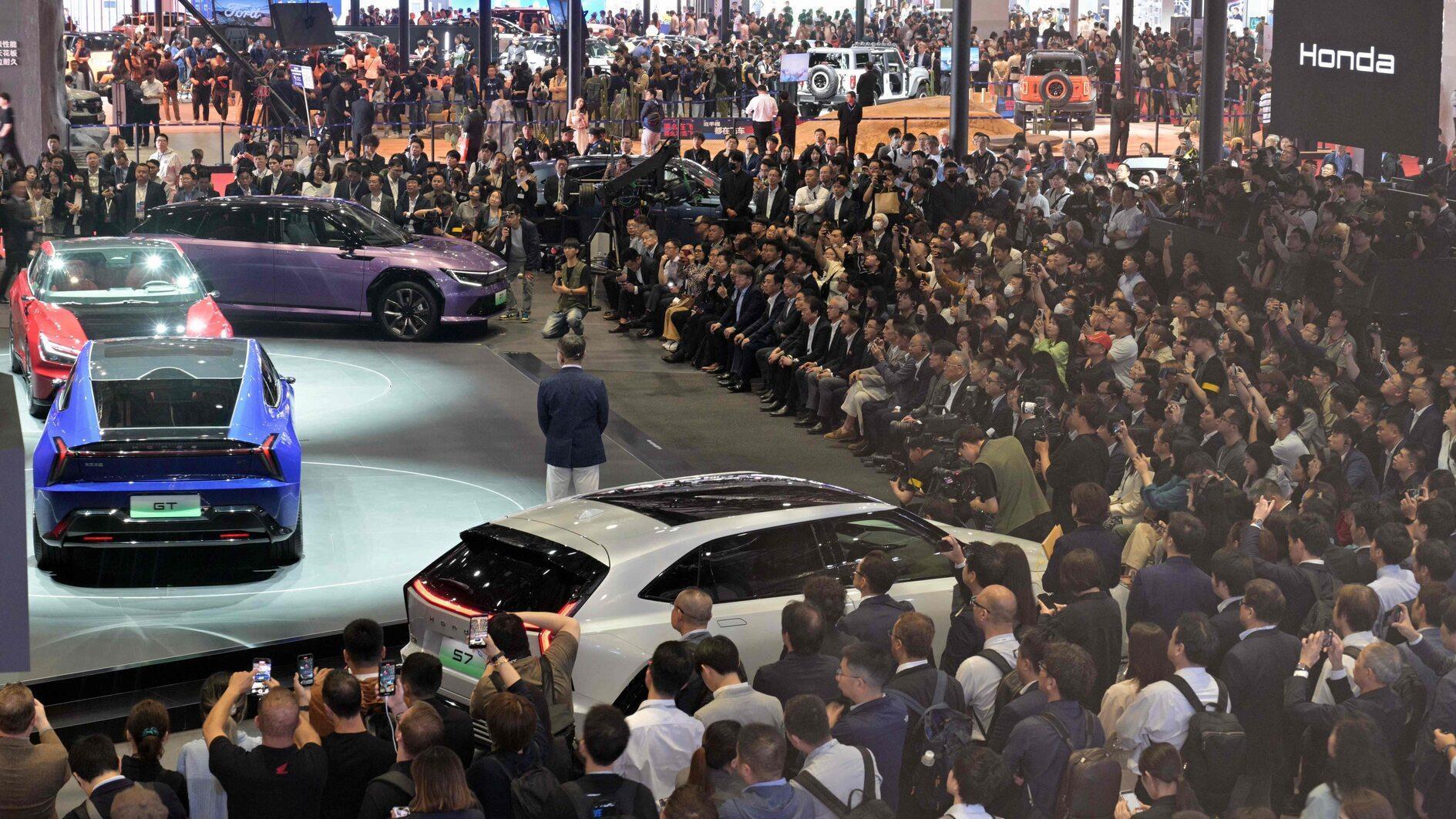
The world's largest auto expo opened its doors on Wednesday in Shanghai, showcasing the new electric world order even as mounting trade barriers risk dampening China's global ambitions.
With nearly 1,000 exhibitors present, foreign carmakers are raring to show they can keep pace with the ultra-competitive Chinese firms that dominate the sector's electric frontier.
Vying to shore up sliding sales in a market they used to dominate, German companies pitched themselves as building cars "in China for China."
Volkswagen unveiled a series of new electric vehicles and a driver assistance system developed especially for the Chinese digital ecosystem.
The group says it will launch more than 20 electric and hybrid models for the country by 2027.
At the BMW booth, a foreign executive conducted a conversation in Mandarin with an AI assistant, before CEO Oliver Zipse rolled onstage in a futuristic white SUV from the upcoming "Neue Klasse" series.
A separate version specifically tailored for China will be launched next year.
Foreign brands are up against cutthroat competition from dozens of local rivals.
Beijing's historic backing of EV and hybrid development has seen the domestic market flourish, with analysts considering it younger-leaning and more open to novelty.
Auto Shanghai, which runs until May 2, will see a flurry of launches, luxury SUVs, saloons and multi-purpose vehicles.
The domestic contest has pushed Chinese companies to develop faster and fostered technological innovation.
However, the effect of the crowded market on individual companies can be harsh, some start-ups have already gone bust, while brands including SAIC Motor, BYD and Geely are engaged in a brutal price war.
Many Chinese automakers have looked to grow their overseas sales in markets such as Europe, Latin America and Southeast Asia to safeguard their future.
Last year, China exported 6.4 million passenger vehicles, more than 50 percent above second-ranked Japan.
Tariffs will also be on the minds of foreign companies who make cars in China themselves, such as the United States' General Motors and Ford.
Since last year, Chinese carmakers have also faced extra duties from the European Union, which says state support has unfairly undercut its own automakers.
However, exports to Russia and the Middle East have helped cushion these and other tariff impacts, AlixPartners said.
And although the levies will increase the cost of China's vehicle component exports by about 24 percent, "this represents only about 3.8 percent of China's total auto industry production value," it noted.
Other speedbumps are internal.
China's post-pandemic recovery has wobbled, with low domestic consumption a persistent issue, while concerns have been raised about overcapacity.
However, "anyone who says that China is becoming less important and weaker should look at Shanghai", warned German automotive expert Ferdinand Dudenhoeffer in a note.
"The opposite is true. If our car industry wants to recapture the successes of the past, it must become more Chinese."